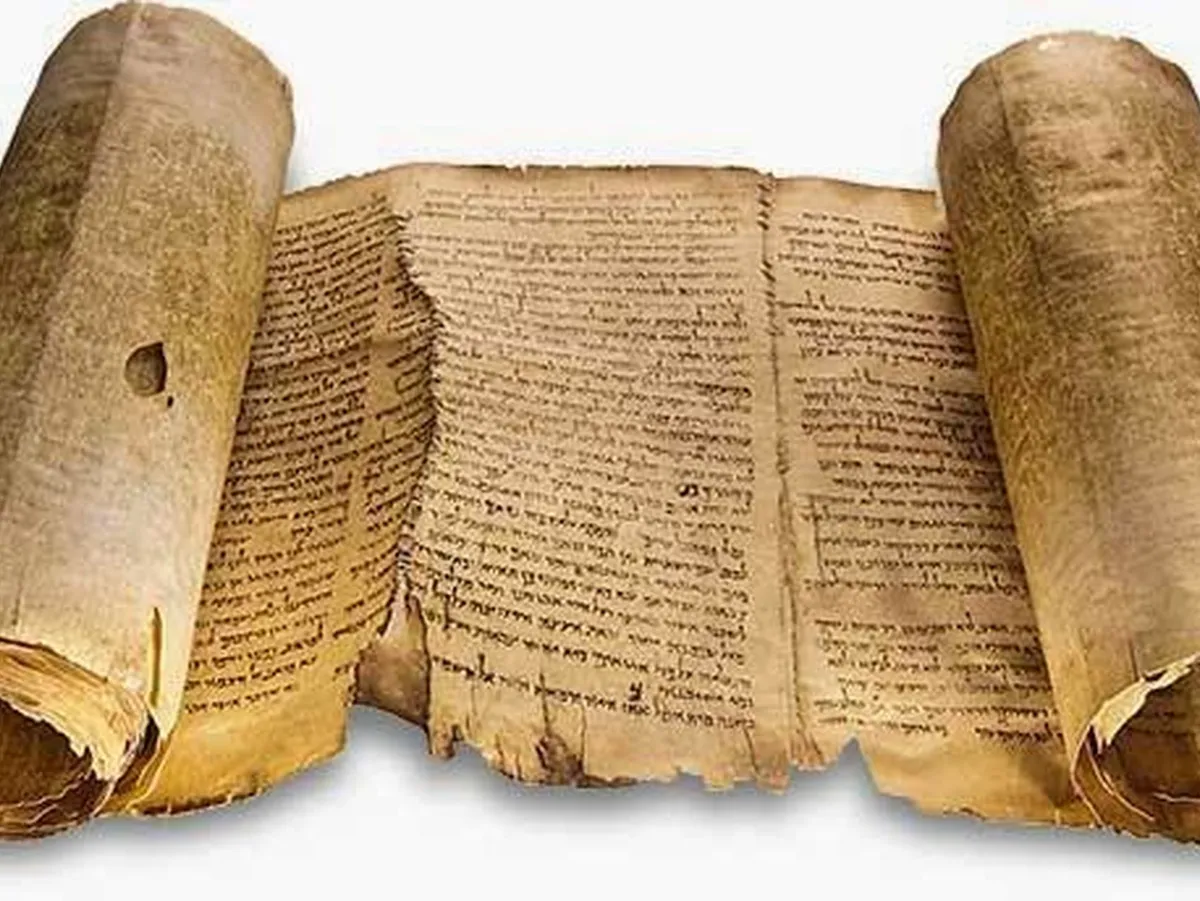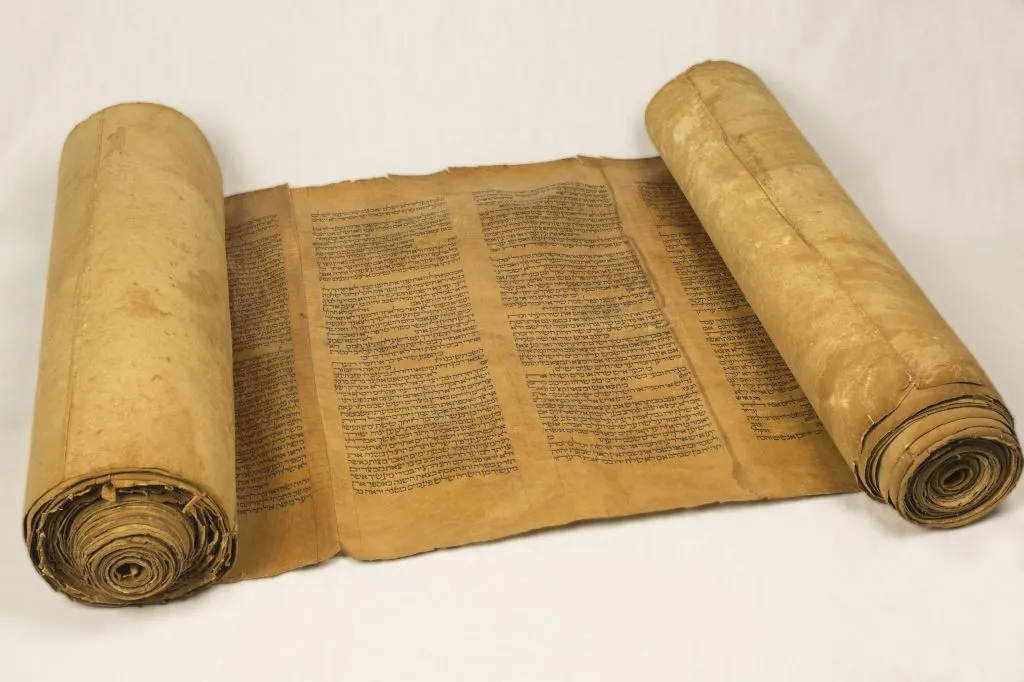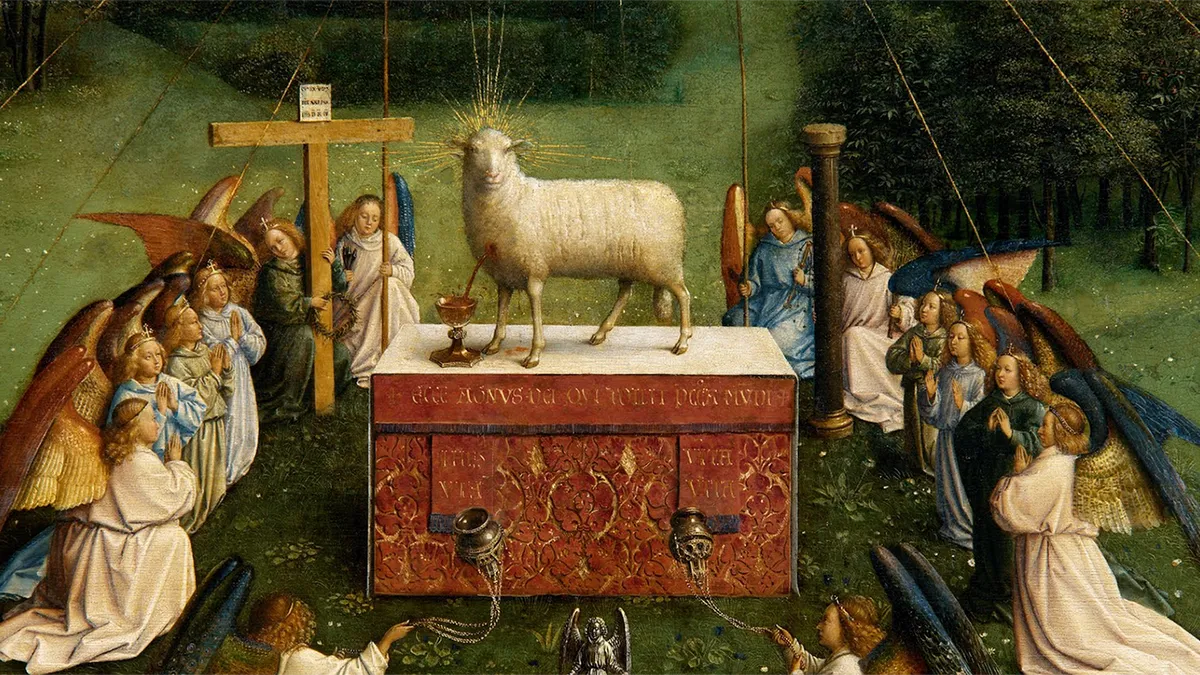Canonicity

Of the voluminous assaults on the bible, the 66-book canon seems to be a persistent bellowing from the enemies of Christ. From the Roman Catholics claims that the Deutero-Canonical or Apocryphal books belong in the Jewish Old Testament or mention of the ‘lost books’ of the bible, to the Patriarchy hiding books to control women, early church chaos, the Gnostic gospels, ancient aliens, etc. Calling the bible canon into question is the low hanging fruit in the minds defiled by sin. As though the mere question itself is evidence against the canon; the postmodernist mentality.
We will consider the question of the canon from a Presuppositional Apologetics standpoint (acquaint yourself briefly here). The reason is because the question of which books are inspired, and which books belong in the canon is not a historical question it is a theological one. It was an event in history and so history is involved, but history can only provide varying degrees of probable knowledge. What we need is a more sure word of prophecy, we need “Thus saith the LORD”. The research of history presupposes a certain view of reality- of metaphysics and epistemology; a philosophy of history. And the Christian religion provides the only coherent foundation for that. In other words, for there to be such a thing as historical evidence the God of scripture must exist. In order to argue from history, we must already have a view of a particular sort of God in back of reality and not atheism, pantheism or deism. (None of which can justify causation, immaterial invariable laws of math & logic, our minds, or any continuity between the material and immaterial realms.) Thus, the question of which canon is correct is indistinguishable from the question of which God exists. “In fact it then appears that the argument for the Scripture as the infallible revelation of God is, to all intents and purposes, the same as the argument for the existence of God.” (The Defense of the Faith pg. 109 Van Til) Therefore ‘the indirect method of reasoning by presupposition’ must be employed to answer this question of canonicity.

“According to Bruce Metzger, the word deuterocanonical was a term coined in 1566 by the Roman Catholic Sixtus of Sienna. It was used to distinguish between the two different kinds of books whose authority the Roman Catholic Church recognized, the “protocanonical” (those received from the church’s inception) and the “deuterocanonical” (those acknowledged later in church history).” (Greg Salazar) The Roman Catholic church has 12 additional books while the Eastern Orthodox church has 15 books in the secondary canon. A “secondary” canon means there would exist a primary canon. (Heb.8:13) Interestingly “it was not until the Council of Trent decreed in April 1546 that the Roman Catholic Church’s canon of the Old Testament should contain the Apocrypha”. (Greg Salazar) This was in reaction to the Protestant Reformation. “This decree also condemned anyone who did not “accept these entire books, with all their parts, as they have customarily been read in the Roman Catholic Church and are found in the ancient editions of the Latin Vulgate, as sacred and canonical.” (Salazar) But even if we have all the historical data surrounding when certain books were used and received as scripture it doesn’t answer whether the correct choice was made. History can’t answer the question whether certain books ought to be included in the canon, it can only tell us how and when the ones we have most likely were included. Also, the apocryphal books are not necessary for presuppositionalism.
The superintending of the canon as well as the preservation of it is a question concerning the providence of God, and the particular God of scripture. If the sort of God in scripture spoke to us, then implicit in that proposition is that he will insure we hear what he spoke to us. God knows what he inspired and intended us to receive. And there are no shortage of scriptures indicating his promise of preservation of his words.
(Isa.59:21,Isa.40:8,Prv.22:12,Eccl.3:14,Psa.119:86,90,160,Psa.146:6,Matt.5:18,Deut.30:11,Psa.33:11,Psa.12:6-7,1 Chr.16:15,Psa.111:7-8,Psa.100:5,Isa.30:8,Matt.28:19-20) Words he will judge us by in the resurrection. (Jn.12:47-50, 5:38-9) God would not need in addition to inspiring certain books an inspired table of contents to identify them. The question then becomes not are we able to identify the inspired books, but can he identify them to his people. Not, can we hear but can God speak.
Accusations of circular reasoning will no doubt emerge here because people do not think generally about worldview or philosophical evaluation. They don’t generally challenge their own assumptions, they just in simplicity assume. You compare philosophies or worldviews by assuming them and seeing if they are consistent and internally coherent then contrasting them with others. Like trying on different suits to see which one is designed to fit. When we say the bible provides the only coherent worldview or philosophical system then we depend upon its revelation regarding itself. A self-authenticating circle is required but a question begging circle is a fallacy. That the bible is self-authenticating is something foreign to the Roman Catholic. They anathematize sola scriptura yet have no way to indicate what is given by inspiration of God besides what the Popes and Bishops say. But when asked who gives them the authority or capacity to do this, they must say Jesus as is recorded in scripture. So, it is a one-dimensional circular fallacy. Jesus authorized the Popes and Bishops to tell us what Jesus said. How do we know Jesus said this? Because the Pope’s and Bishops say. Final authority is a non-self-authenticating Magisterium in the Roman Catholic church traditionally enforced by the power of the state; spiritual tyranny.
We must start our reasoning with a certain view of reality; with metaphysics- the nature of the universe and relatedly epistemology- the nature of how knowledge is possible. You can’t start to think about anything without these general assumptions, that the universe is basically uniform, and logic and math applies to everything, all facts are interconnected in a web of rationality, and we are able and obligated to think rationally to find facts. But this view of the world is validated by the bible. The only rational philosophical system is derived from the teachings of scripture. (as here) And so, if you knew nothing about the history of the bible you can read what it teaches and justify reasoning and science and history. Something no other religious text or philosopher can duplicate even remotely.
For it is written, I will destroy the wisdom of the wise, and will bring to nothing the understanding of the prudent. Where is the wise? where is the scribe? where is the disputer of this world? hath not God made foolish the wisdom of this world? 1 Cor.1:19-20
That your faith should not stand in the wisdom of men, but in the power of God. Howbeit we speak wisdom among them that are perfect: yet not the wisdom of this world, nor of the princes of this world, that come to nought: 1 Cor.2:5-6
For the wisdom of this world is foolishness with God. For it is written, He taketh the wise in their own craftiness. And again, The Lord knoweth the thoughts of the wise, that they are vain. 1 Cor.3:19-20
The bible justifies belief in itself because unless what it teaches about God is assumed no knowledge is possible. And so, it is demonstrable in objective certainty that the fear of the LORD is the beginning of wisdom, and knowledge, and there is in fact no wisdom nor counsel nor understanding against him. (Psa. 111:10, Prov. 1:7, 9:10, 21:30) He himself is the source of all of these things. He is the source of uniformity and laws in nature and the source of morality. We derive these truths from scripture as the foundation of our Christian philosophy. But along with this truth is the guarantee that this God gave his word and will oversee it until the end of the world. (Mt.28:18-20) To question the canon is to question the existence of the very God necessary to justify thought and evidence for anything whatsoever. It is to cut off the very branch you are sitting on. If that God spoke, then most assuredly he preserved his words to all generations.

So, the bible stands alone authenticating its own claims by the revelation necessary to justify any and all knowledge (I.e., presuppositional apologetics). It gives us in its teachings the preconditions needed to account for intelligibility and what we experience. It doesn’t need any unbridled tyranny as the Roman Magisterium claiming anything. The scripture must be what it claims when evaluating those claims because there are no other worldviews to begin with; no other suit fits. This is particularly troubling for Catholics for their authority claims are mere usurpations. If they attempt to claim the bible is the word of God because of prophecies or any inherent properties of scripture, then they confirm sola scriptura. If they claim it is the word of God on their say so, they lay a fallacy as their cornerstone. And we can still disregard their say so and see that the bibles claims are independent; I don’t need to know where it came from to examine its claims. For the God of scripture established the church and secured his word and preserved it by his people because he is omnipotent and faithful. But if we discarded all historical claims about the bible, it is what it claims to be by the evaluation of its teachings.
If someone asserted, ‘men on psychedelic trips wrote the bible’. And we examined the teachings of scripture regarding reality, we should conclude it is God’s word and must be what it claims and must be preserved as it reveals in its pages and therefore not a product of Psychedelia. The bible authenticates itself.
When we examine in its pages what it teaches about itself and regarding the canonization process, we have the foundation needed to sort through historical claims. And we recognize that the bible consists of historical documents, but they are given by inspiration of God and their preservation is overseen by the preserver of all things. (2 Tim.3:16-7, Neh.9:6, Prv.22:12) But what we find of interest is that there was no authoritative council advising the church on which books of the New Testament to receive; on which apostles were giving epistles that should be included in a canon. “First, remember that not all special revelation was given in written form or subsequently committed to writing (e.g., many discourses by Jesus while on earth, John 21:25; private revelations to the apostles, II Cor. 12:4,7; Rev. 10:4; unpublished messages from New Testament prophets, I Cor. 12:28). Second, we must note that not all of those inspired messages which were reduced to writing have been preserved by God's providence for use by His people through history, such as "The Wars of Jehovah," "The Book of Asher," Paul's previous letter to the Corinthians, etc. (c.f., Num. 21:14; Josh. 10:13; II Chron. 9:29; 12:15; I Cor. 5:9; II Cor. 2:4; 7:8). Therefore, we should say more precisely that the canon of the Christian church is constituted by those inspired writings which God has preserved for His people in all subsequent ages.” -The Concept and Importance of Canonicity by Greg Bahnsen
The church was not structured in such a way that there was a central authority that all saints in all locations had to submit to. In matters of authority the church (the pillar and ground of the truth- 1 Ti.3:15) had its leaders and apostles as the foundation (Ep.2:20, 1 Co.12:28) but corporately was truth received and established in contrast to ipse dixits, or ex cathedra's, just as the Acts 15 counsel reveals. The apostles and elders considered and addressed the matter at hand with open debate, then “pleased it the apostles and elders with the whole church” (v22); “it seemed good to the Holy Ghost, and to us”. (v28) The Holy Ghost worked through the entire body regarding questions affecting the body. (Act.6:3-6, 1 Cor.6:1-5) The Bereans did not just accept Paul on his own say so but “searched the scriptures daily, whether those things were so” and were honored for it (Ac.17:11). Why? Because scripture is the final authority and the more sure word. (2 Pt.1:19-21)
The church as the pillar and ground of the truth was the body in which Christ deposited his revelation. (1 Tim.3:15) If a disciple “shall neglect to hear the church” he would be as a heathen (Mt.18:17) as authority was invested by Christ in the local bodies of believers. The gates of hell would not prevail against the church (Mt.16:18) but the Spirit would guide them into all truth (Jn.14:26, 16:13, Mt.7:28-9, 1 Cor.2:5,13-6) specifically concerning seducers and deceivers (1 Jn.2:26-27, Gal.1:9, 2 Thes.2:2, 1 Jn.4:1, 2 Jn.1:10). His sheep “follow him: for they know his voice. And a stranger will they not follow”. (Jn.10:4-5, 27, Act.2:42,14:3, Mk.16:20) They recognize and submit to his words. When scriptures were given to particular churches, they were instructed to cause them to be read by other believers (Col.4:16, 1 Thes.5:27) in order to hear “what the Spirit saith unto the churches” (Rev.1:11, 2:7, 11, 17…etc.). It was received not as the word of men but as it is in truth the word of God which effectually worked in those that believed (1 Thess.2:13). The church received and recognized scripture but did not decree scripture any more than a Physicist decrees a physical law. The Apostles doctrine was at the foundation of the church for the perfecting of the church thus again there would be a finality to this process in their days. (Act.2:42, 1 Cor.12:28, Eph.2:20, 4:11-14, 2 Tim.3:16-7) Inscripturation was in real time (Ac.2:42, 1 Cor.14:37, 2 Pet.3:16, 1 Tim.5:18 w/ Lk.10:7, Ac.13:25, Mt.21:26, w/Jn.1:27, Lk.3:16, 2 Thess.3:14, Rev.1:1-4,11, under the direction of the apostles (2 Pet.3:16, 1 Tim.5:18, Rev.1:3-4, 11, 3:22, 1 Thes.5:27, Col.4:16) similarly as with the law and the prophets- Deut. 31:24-26; I Sam. 3:19-21,10:25, 1Kin.4:29-30, Dan. 9:2, Isa.8:20, Mal.2:7 w/ Jer.33:20-1 & 2 Ki.22:8) as the gospel was already delivered by Christ and the apostles (Mt.10:40, Lk.10:16, Jn.13:20) and already being defended. (Lk.1:1-4, Heb.1:1-2, 2:3-4, Gal.1:8-12, Jd.3, Rev.1:11,22:13, Heb.12:2) God didn’t need to give an inspired table of contents in addition to giving the books he inspired for a canon, for the act of inspiring certain books automatically creates a table of contents- books for the canon and books not for the canon. God also providentially superintended the recognition of his scripture, because he teaches us this in scripture. Just as with the Old Testament canon God by his Spirit directed his people without a specifically ordained council.

And so as consistent with biblical teaching regarding the building of the church upon the foundation of the apostles and divine direction provided by the Spirit to all his saints (Jn.6:45, Heb.8:11,2 Cor.6:18, Ac.2:17-8) according to the one who can swear by no greater than himself, we see the canon established from the ground up by independent local churches and believers recognizing the scripture’s divine authority. (Consider the ant and the locust. Prov. 6:5-7, 30:25,27) Not from a top down Nicolaitane like imposing of conclusions by authoritative councils; but with the absence of any centralized authority over the churches distributed throughout the world and not lorded over by some seeking dominion over the faith of others. (2 Cor.1:24, 1 Pt.5:3) Not by many wise men after the flesh not by many mighty and noble, but rather by the foolish and weak, by the ignorant and unlearned. (1 Cor.1:26-8, Ac.4:13) The local believers were not told that they must use these 27 New Testament books alone as scripture by any supreme council or popish figure. And yet providentially and internally they were led into agreement embracing “those things which are most surely believed among us” (Lk.1:1). As with John the Baptist, he was perceived to be a prophet by the people in spite of the Jewish authorities (Mt.21:25-7, Mk.11:32, Lk.20:6) and that he did no miracles. (Jn.10:41) Again, just as with the Old Testament canon God by his Spirit directed his people without a specifically ordained council.
In the New Testament we can see that the Lord and the apostles (and their enemies) testified that they had the words of God (the Old Testament scriptures) in their hands while it had been given by inspiration centuries before. 2 Pet. 1:19-21 We have also a more sure word of prophecy; whereunto ye do well that ye take heed, as unto a light that shineth in a dark place, until the day dawn, and the day star arise in your hearts: Knowing this first, that no prophecy of the scripture is of any private interpretation. For the prophecy came not in old time by the will of man: but holy men of God spake as they were moved by the Holy Ghost. Matt.22:31 …have ye not read that which was spoken unto you by God, saying, Luke 24:27 And beginning at Moses and all the prophets, he expounded unto them in all the scriptures the things concerning himself. Luke 20:28 … Moses wrote unto us… v37 … that the dead are raised, even Moses shewed at the bush… John 10:34-5 Jesus answered them, Is it not written in your law, I said, Ye are gods? If he called them gods, unto whom the word of God came, and the scripture cannot be broken; Matt.5:18... Till heaven and earth pass, one jot or one tittle shall in no wise pass from the law, till all be fulfilled. Heb.10:15 Whereof the Holy Ghost also is a witness to us: for after that he had said before… Acts 28:25 Well spake the Holy Ghost by Esaias the prophet unto our fathers, Mark 13:14 … But when ye shall see the abomination of desolation, spoken of by Daniel the prophet, standing where it ought not, (let him that readeth understand,) Rom.15:4 For whatsoever things were written aforetime were written for our learning, that we through patience and comfort of the scriptures might have hope. Rom.4:3 … For what saith the scripture? v17 As it is written… v23-4 Now it was not written for his sake alone, that it was imputed to him; But for us also… Rom.11:4 But what saith the answer of God unto him? Matt.19:4 … Have ye not read, that he which made them at the beginning made them male and female… v7…Why did Moses then command… Matt.22:29 …Ye do err, not knowing the scriptures John 5:38-9 And ye have not his word abiding in you: for whom he hath sent, him ye believe not. Search the scriptures; for in them ye think ye have eternal life: and they are they which testify of me. Acts 2:16 … this is that which was spoken by the prophet Joel… v25 … David speaketh concerning him… v31 He seeing this before spake of the resurrection of Christ, that his soul was not left in hell, neither his flesh did see corruption. V34 For David is not ascended into the heavens: but he saith himself, The Lord said unto my Lord, Sit thou on my right hand… Matt.1:22 Now all this was done, that it might be fulfilled which was spoken of the Lord by the prophet, saying…
Over and over again the apostles, their adversaries and the Lord Jesus himself bear record that they read and had access to what was originally written in their copies and translations.
The Jews were told to expect when That Prophet arose (Deut.18:15, 18-19, Jer.31:31-4) that God’s words would be spoken by him like unto Moses (Ac.3:22-4 Jn.3:34, Mt.17:5), establishing a new covenant (Jer.31:31-34, Mt.26:26-8, Heb.2:2-4). God confirmed him with miracles and wonders and signs. (Jn 2:11,23,3:2,6:2,14, 7:31,11:47,12:37, Ac. 2:22,10:38, Mt.8:16-7) That Prophet would reveal things kept secret from the foundation of the world. (Mt.13:35, Psa.78:2, Rom.16:25-6, Jn.16:13, Eph.1:9, 3:3-5) It was commonly understood that “when he is come, he will tell us all things”. (Jn.4:25) By his words men would be judged. (Dt.18:18-9, Jn.5:38-9,8:31,12:48-50,14:15,23-4) But those things, which God before had shewed by the mouth of all his prophets, that Christ should suffer, he hath so fulfilled. (Ac.3:18) Because he hath appointed a day, in the which he will judge the world in righteousness by that man whom he hath ordained; whereof he hath given assurance unto all men, in that he hath raised him from the dead. (Act.17:31)

Although Catholics and Protestants and other Bible believers use the same 27 book New Testament canon, they disagree on the Jewish Old Testament. The Catholics reject the traditional Hebrew canon while Protestants accept it. (Westminster Confession, sec. 2-3; Belgic Confession Art.4,6; London Baptist Confession, Sec.1-5) The Jews had the oracles of God, the adoption, and the glory, and the covenants, and the giving of the law, and the service of God, and the promises. (Rom.3:2, 9:4, Isa.59:21) Even the enemies of Christ in the Jewish leadership “sit in Moses' seat” thus Jesus instructed “All therefore whatsoever they bid you observe, that observe and do”. (Mt.23:2-3, Mal.2:7, Hag.2:11, Jn.11:49-51) The Apocryphal books show up in the intertestamental period after the law & the prophets are recognized as authoritative. This time frame is supported by the fulfillment of Daniels prophecy (Dan.9:24-6) tying the decree of Cyrus according to Isaiah’s prophecy (Isa.44:26-8, 45:1) and the fulfilling thereof in Ezra and Nehemiah’s day under the ministry of Zechariah and Haggai the prophets (Ezra 5:1, 6:14) The next event being the coming of the Messiah. The Old Testament canon was closed until that Prophet should appear. The New Testament never references the apocryphal books directly except the intertestimental book of 2 Maccabees ch.7 which is referenced in Heb.11:35. But this does not indicate canonicity since the Old Testament canon (law & the prophets) was closed as indicated in 2 Macc. 15:9, 2:13. "A few chapters later it endorses the practice of praying for the dead so that they may be freed from the consequences of their sins (2 Macc. 12:41-45)"; obviously heretical. Also relevant is Ecclesiasticus 1:1, 1 Macc 4:46, 14:41, 9:27. Paul quoted from a pagan poet in Ac.17:28 and a Cretian prophet in Tit.1:12, but that doesn't prove them is canon material.
“Moreover, when the author relates that Judas confidently encouraged his troops, that boldness came “from the law and the prophets” (2 Mac.15:9), as though this were already a recognized and authoritative body of literature to him and his readers. (This is also reflected in the prologue to Ecclesiasticus.) I Maccabees 9:27 recognizes the time in the past when “prophets ceased to appear among” the Jews.” -The Concept and Importance of Canonicity by Greg Bahnsen (Also 1 Macc.4:46,14:41)
The church originally had the OT- Lk.24:26-7,32, 44-5, Jn.5:39, 20:9, Ac.8:32, 35, 17:2,11, 18:24, Rom.1:2, 15:4, 16:26, 1 Cor.15:3-4, 2 Tim.3:15. The apostles and Jesus himself agreed with the strictest sect of Judaism (Ac.26:5, Mt.23:2-3, Jn.3:1-2, Phil.3:5, Rom.3:2) regarding the Old Testament canon. (Mt.5:17, 7:12, 22:40, Lk.24:26-7, 44-5, Jn.1:45, Ac.13:15, 17:2, 24:14) The law and the prophets were the officially received body of authoritative revelation that existed and was referred to by Jesus and the apostles as the Old Testament canon. (Matt. 5:17,7:12,11:13,22:40, Luke 16:16,24:44, John 1:45, Acts 13:15,24:14,28:23, Rom. 3:21) Which is why the two witnesses, Elijah and Moses (representing the law and the prophets) appear with Christ because the scriptures would testify of him. (Rom.3:21, Mt.17:1-5, Lk.24:27,44-5, Jn.5:39)
“The ancient Jews, to whom were entrusted the “oracles of God” (Rom. 3:2), never accepted these apocryphal books as part of the inspired canon — and still do not to this day.[4] Josephus speaks of the number of Jewish books which are divinely trustworthy, not leaving a place for the apocryphal books. Josephus expressed the common Jewish perspective when he said that the prophets wrote from the time of Moses to that of Artaxerxes, and that no writing since that time had the same authority. The Jewish Talmud teaches that the Holy Spirit departed from Israel after the time of Malachi. Now, Artaxerxes and Malachi both lived about four centuries before Christ, while the books of the Apocrypha were composed in the vicinity of two centuries before Christ.” -The Concept and Importance of Canonicity by Greg Bahnsen (also this lecture by Bahnsen)
In the same article Bahnsen points out errors with the Apocryphal books that would support why the Jews never received them into the Old Testament canon even to this day. “Finally, the books of the Apocrypha abound in doctrinal, ethical, and historical errors. For instance, Tobit claims to have been alive when Jeroboam revolted (931 B.C.) and when Assyria conquered Israel (722 B.C.), despite the fact that his lifespan was only a total of 158 years (Tobit 1:3-5; 14:11)! Judith mistakenly identifies Nebuchadnezzar as king of the Assyrians (1:1, 7). Tobit endorses the superstitious use of fish liver to ward off demons (6: 6,7)!
The theological errors are equally significant. Wisdom of Solomon teaches the creation of the world from pre-existent matter (7:17). II Maccabees teaches prayers for the dead (12:45-46), and Tobit teaches salvation by the good work of almsgiving (12:9) -- quite contrary to inspired Scripture (such as John 1:3; II Samuel 12:19; Hebrews 9:27; Romans 4:5; Galatians 3:11).”
You can find more research here: Michael J. Kruger- https://www.michaeljkruger.com/article-index/


